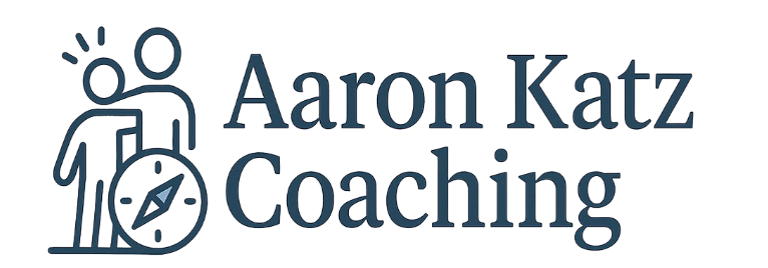Build Your Resilience
Young professionals need to build resilience - the often ignored ability to adapt and move forward.
Aaron Katz
8/19/20252 min read


You have invested in building your career skills, you've worked on your professional communication, but you continue to feel unsettled and adrift in your career. Maybe it's time to focus on something too many people ignore: resilience.
Resilience is your capacity to adapt, recover, and keep moving forward when things don’t go as planned. In today’s job market, marked by constant transitions, online distractions, AI disruption, and shifting market needs, resilience can keep you grounded and growing.
Why resilience matters now
Young professionals are entering the workplace at a rough time. You can’t control the conditions. But you can control how you respond. Resilience is the difference between being thrown off by each new course change to finding some solid footing again. It’s what allows you to take setbacks—like the 100th rejected application, a difficult co-worker, or even a layoff—and use them to push you forward.
What resilience looks like in action
Resilience shows up in several ways:
Perspective. Resilient professionals see challenges as part of the journey, not the end of it. They recognize that no career is linear.
Flexibility. They’re willing to pivot—shifting industries, roles, or approaches—without seeing it as failure.
Problem-solving. Instead of dwelling on obstacles, they ask, “What’s the next best step?” They break down problems into bite sized pieces to make progress easier.
Self-care. They take care of their energy through healthy boundaries, rest, and maintaining relationships. Resilience isn’t about being unbreakable—it’s about being sustainable.
What I tell my coaching clients
When I work with young professionals, I remind them that resilience is something you build, not some innate trait. Here are a few ways to practice:
Reframe setbacks. Don’t interpret rejection or failure as proof you're "failing" or "bad." Instead, ask: What can I learn here? How does this move me closer to where I want to go? What emotions am I attaching to this situation?
Strengthen your support network. Friends, mentors, coaches, and colleagues can provide perspective when you’re stuck in your own head. Resilience is a team sport.
Control what's controllable. You can’t influence whether a company freezes hiring. You can keep your skills sharp, network, and brainstorm alternatives. Focus energy where it matters.
Invest in small wins. Break challenges into manageable steps. Whether it’s completing a certification, setting up an informational interview, or presenting in a meeting, small wins add up to confidence and momentum.
Stay aligned with your values. Resilience doesn’t mean tolerating toxic workplaces or abandoning your goals. It means remembering your values, your passions, and your definition of success are your north star.
A practical exercise
Try this: each week, write down one challenge you faced and how you responded. Note what worked, what didn’t, and what you might try next time. Think about your emotional reactions. Over time, you’ll start to see your capacity grow—and you’ll build a personal playbook for handling adversity.
Final thought
Resilience won’t eliminate challenges. But it will change your relationship with them. Instead of seeing obstacles as proof you’re failing, you’ll see them as opportunities to adapt, grow, and move forward.
For young professionals, resilience may be the single most important skill to cultivate. Careers today aren’t built on a straight line—they’re built on the ability to keep going, keep learning, and keep moving toward a definition of success that is truly your own.
Aaron Katz Coaching
Guiding young professionals to career success.
Get In touch
aaron@aaronkatzcoaching.com
(508) 501-8892
© 2025. All rights reserved.
